Lemon: definition, how to grow it, diseases, care for it
Introduction to lemon
A small to medium-sized evergreen tree or shrub with glossy green leaves and fragrant white flowers. Its fruits are bright yellow oval berries with a thick flavor and juicy tart pulp. It is full of vitamin C and has a distinctive, refreshing scent.
- The benefits of lemon for the colon and digestive system are due to it containing a good percentage of soluble fiber, the most important of which is pectin.
- Preventing iron deficiency anemia
- Lemon also contains many flavonoids that have been found to have potential abilities to kill cancer cells
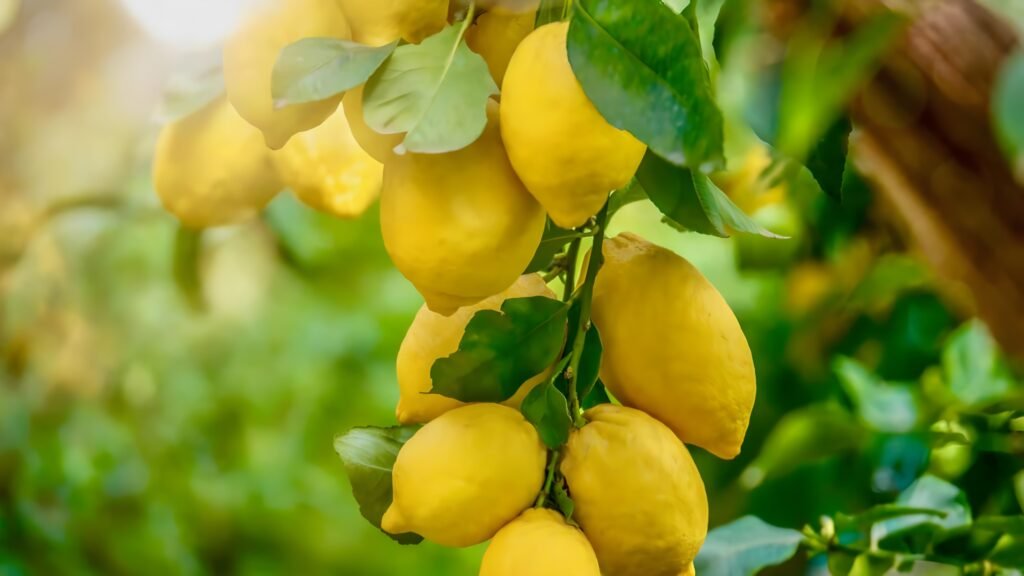
Basic care guide
- Meyer: Dwarf lemon, with delicious golden yellow fruit, bears heavily at a young age, and flowers and bears fruit all year round.
- Ponderosa Lemon Tree (Citrus): Prolific
- Eureka Lemon is one of the most popular lemon varieties grown today. Prolific, small to medium sized, with soft, juicy fruits and few or no seeds. The peel has raised edges and is filled with essential oil that gives it an intense citrus scent.
- The Eureka Pink Lemon variety is a masterpiece worth growing. This variety yields easily with light pink pulp and very few seeds.
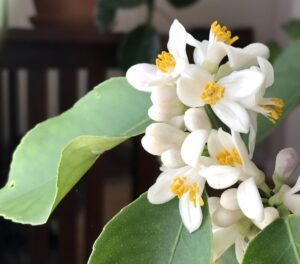
Suitable lighting for him:
Choose a sunny location that receives at least 6 to 8 hours of direct sunlight per day
- How to plant seeds
- After removing the seeds from the fruit, rinse it with water to clean the pulp.
- Plant the seeds 1 inch deep in a small pot. “It is best to plant the seeds as soon as possible, as they cannot tolerate drought for long.”
- Water the seeds well and keep them in warm conditions (at least 70 degrees F) to allow them to germinate. After a few weeks, the seeds will begin to germinate.
The amount of water needed
- You should check the soil before watering your tree. Try placing your finger 3 to 6 inches deep from the soil surface and make sure the area is dry. If so, now is the time you need to water it. If it is still damp, wait a few more days before watering the tree.
- Potted lemon trees such as the dwarf Eureka lemon tree need watering twice a week. Frequent watering may be needed depending on humidity, climate and plant size.
- Lime trees planted in the ground such as the Improved Meyer or Meyer Lemon Tree and the Bearss Lime Tree can be watered once a week.
Suitable living conditions
Tropical, subtropical and temperate regions in humid, arid or semi-arid conditions
- Starting in early spring, fertilize your lemon tree once every 4-6 weeks during the summer
- Lemon trees should not be fertilized more than four times a year, and should not be fertilized in the cooler season
- If your tree shows no signs of deficiency or disease, choose a general acid fertilizer that is high in nitrogen, phosphorus, and potassium, and includes a variety of micronutrients such as magnesium, calcium, and sulfur.
- If your lemon tree is 3 feet (1 meter) tall, apply lemon tree fertilizer in a 3-foot (1 meter) circle around the tree. If your lemon tree is 20 feet (6 m) tall, lemon fertilization will involve an application in a 20-foot (6 m) circle around the tree. This ensures that the fertilizer reaches the entire root system of the tree.
The soil must be well-drained, preferably sand or clay, as lemon trees do not tolerate waterlogged or heavy clay soil.
Ensuring that the soil pH is slightly acidic to neutral, between 5.5 and 6.5, provides an ideal foundation for its growth.
- Adding fermented local fertilizer improves the soil.
- How to plant seeds
- After removing the seeds from the fruit, rinse it with water to clean the pulp.
- Plant the seeds 1 inch deep in a small pot. “It is best to plant the seeds as soon as possible, as they cannot tolerate drought for long.”
- Water the seeds well and keep them in warm conditions (at least 70 degrees F) to allow them to germinate. After a few weeks, the seeds will begin to germinate.
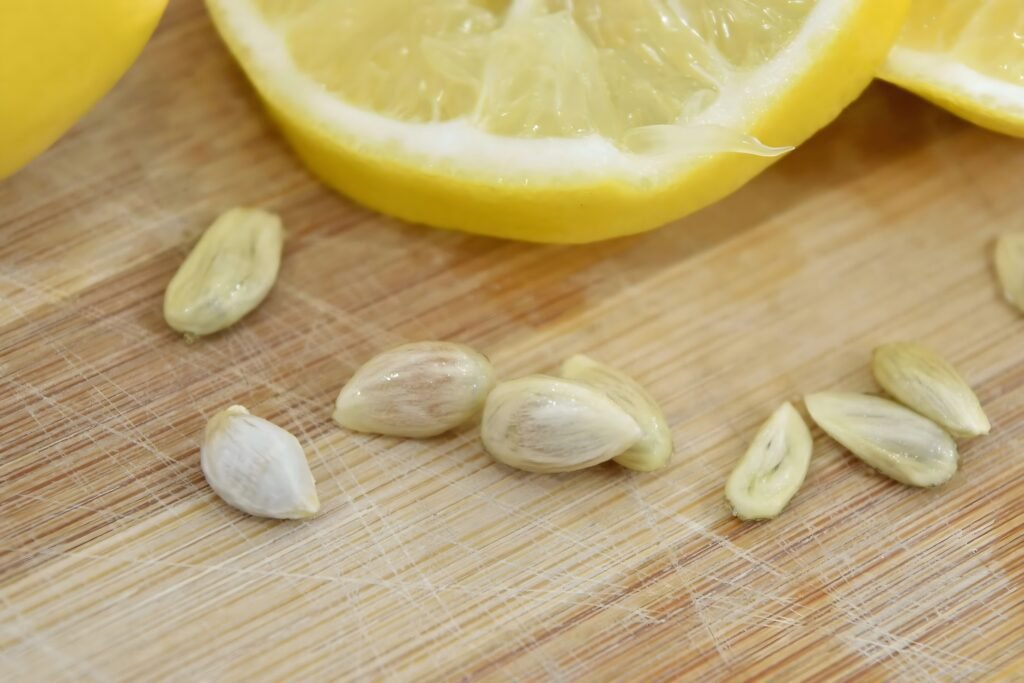
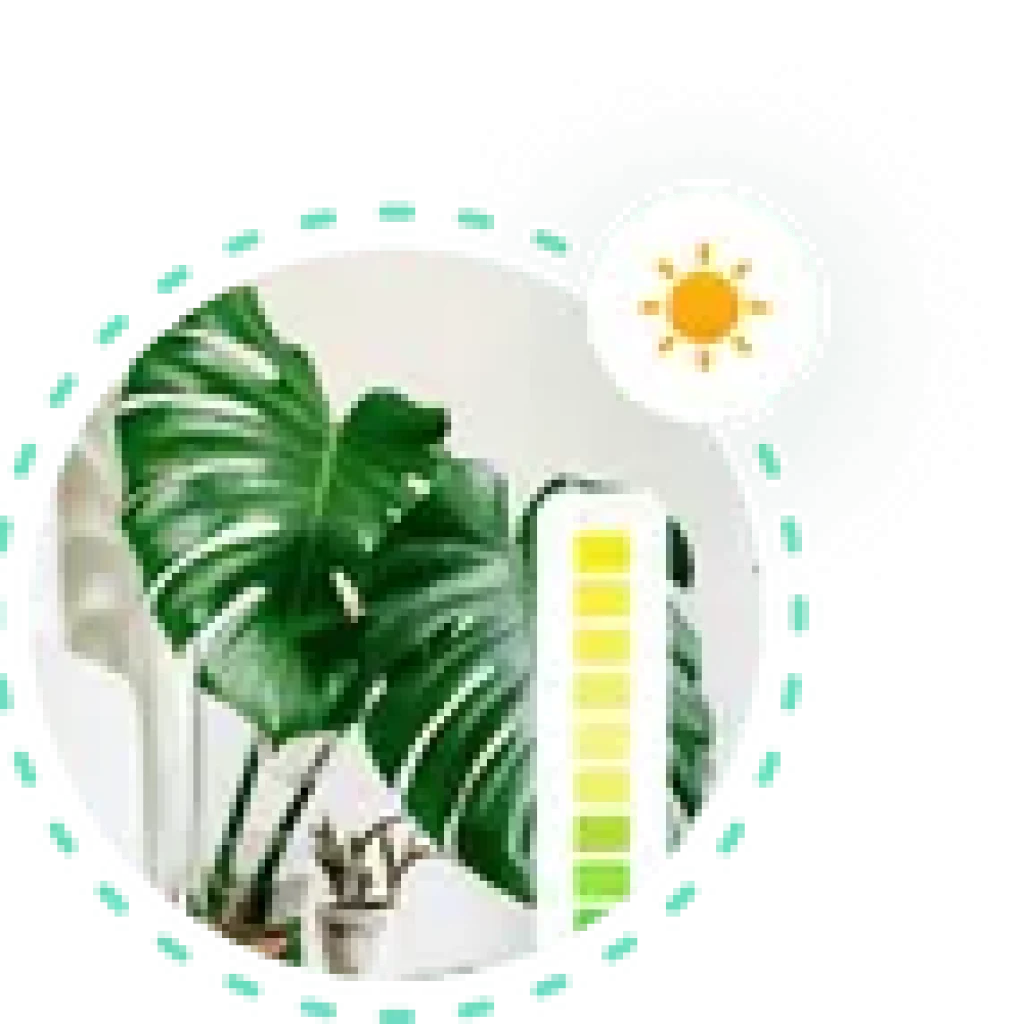
Find out what light your plants are actually getting.
Find the best locations for them to improve their health, simply using your phone.
- Aphids (natural aphid predators are a great way to get rid of aphids like ladybugs)
- Botrytis blight; This fungus quickly attacks lemon tree leaves, young branches, and flowers (If you notice botrytis blight growing on your lemon tree leaves, prune them immediately. Be sure to clean your pruning shears when you're done.)
- Lemon scab: branches and leaves are distorted and wilted. Maintain good garden cleanliness and correct irrigation methods.
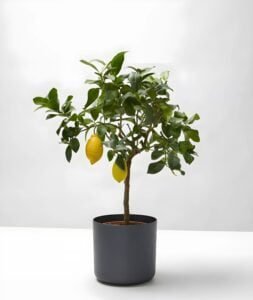
Flowering stage
Typically blooming in fall and early spring, they have the potential to flower at any time of the year if given the right conditions
- Plant age
The average lifespan of lemon trees is over 50 years. With proper care and disease prevention practices, a hardy tree can live more than 100 years
- Plant height
These trees generally reach heights of 20 to thirty feet
- Flowering stage
Typically blooming in fall and early spring, they have the potential to flower at any time of the year if given the right conditions
- Fruiting stage
A healthy lemon tree will begin producing fruit between 3 and 5 years of age
Pruning
Lemon trees don't need a lot of pruning, but they can be reshaped if necessary in late winter by thinning out overcrowded branches. At the same time, tall stems can be cut back to encourage more dense growth at the bottom.
When pruning, care must be taken to avoid its evil thorns.
Young trees up to 90 cm (3 ft) high may need to reduce the number of fruits to no more than 20 fruits.
Suggested use:
- The lemon fruit is used primarily for its juice, although the pulp and peel (rind) are also used, mainly in cooking and baking.
- Perfumery and essential oil production. Lemon oil is also used in cleaning products for its pleasant scent
- The lemon tree holds a special place in cultures around the world. It symbolizes purity and freshness. In many cultures, lemon trees are often planted for happy occasions such as weddings
- Lemon juice is used to relieve the pain of bee stings.



